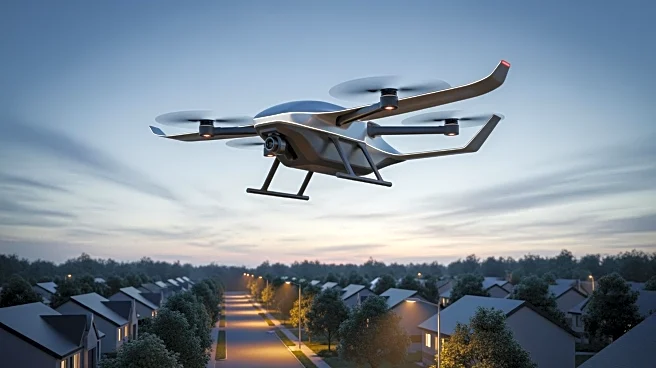What's Happening?
Artificial intelligence researchers are revisiting the concept of 'world models' to advance AI systems towards artificial general intelligence (AGI). This approach involves creating a simplified representation of the environment within AI systems, allowing them to evaluate predictions and decisions before applying them to real-world tasks. Prominent figures in AI, such as Yann LeCun, Demis Hassabis, and Yoshua Bengio, advocate for world models as essential for developing intelligent and safe AI systems. The idea, originally proposed by psychologist Kenneth Craik in 1943, links cognition with computation, suggesting that organisms carry a 'small-scale model' of reality within their heads to react more competently. Despite historical challenges in scaling world models, the rise of machine learning and deep neural networks has renewed interest in this concept, offering potential explanations for emergent capabilities in large language models.
Why It's Important?
The revival of world models in AI research is significant as it promises to enhance the robustness and reliability of AI systems. By developing coherent internal representations, AI systems could overcome limitations associated with heuristic-based learning, which often results in inconsistent and unreliable outputs. This advancement could lead to more dependable AI applications across various industries, including autonomous vehicles, robotics, and natural language processing. Furthermore, robust world models could mitigate issues like AI hallucinations and improve the interpretability of AI systems, addressing critical concerns in AI safety and ethics. As AI continues to integrate into daily life and business operations, the development of world models could play a pivotal role in ensuring these technologies are both effective and trustworthy.
What's Next?
AI labs and academic researchers are actively pursuing the development of world models, with different approaches being explored. Google DeepMind and OpenAI are focusing on multimodal training data, such as video and 3D simulations, to spontaneously generate world models within neural networks. Meanwhile, Meta's Yann LeCun is investigating new AI architectures that could provide the necessary framework for world models. As research progresses, the successful implementation of world models could lead to breakthroughs in AI capabilities, potentially bringing the field closer to achieving AGI. The ongoing efforts in this area are likely to influence future AI research directions and applications.
Beyond the Headlines
The pursuit of world models in AI research raises important ethical and philosophical questions about the nature of intelligence and cognition. As AI systems become more sophisticated, understanding how they perceive and interact with the world becomes crucial. This research could also impact the cognitive sciences, offering insights into human cognition and the parallels between biological and artificial intelligence. Additionally, the development of world models may influence public policy and regulatory frameworks surrounding AI, as stakeholders seek to balance innovation with safety and ethical considerations.









